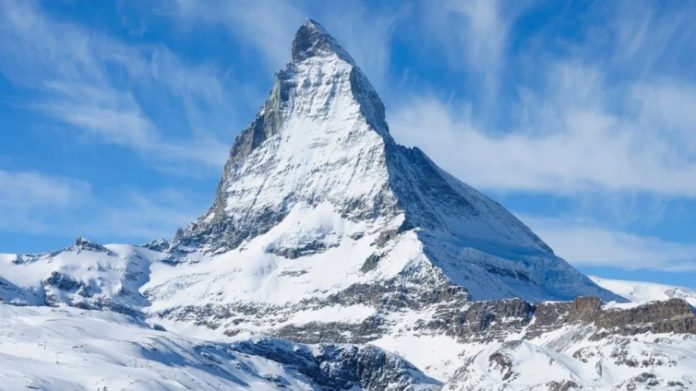A huge search and rescue operation is under way in the Swiss Alps after six skiers went missing.
They set off from Zermatt, home of the famous Matterhorn mountain, on Saturday, on a ski tour towards Arolla, along the Swiss-Italian border.
Somewhere close to the 3,706m high Tete Blanche mountain, they went missing.
Local police say all available rescue teams on both sides of the route have been alerted, but severe weather is hampering the operation.
Swiss police confirmed to the BBC that the skiers are all Swiss nationals, and range in age from 21 to 58 years old.
There have been high winds in the Alps for some days, and over the past 24 hours, heavy snowfalls. Saas-Fee, a winter resort neighbouring Zermatt, is currently cut off by snow.
Anjan Truffer, the head of Zermatt’s air rescue service, told the BBC the weather is currently so bad that “flying is not an option”, with “very strong winds, heavy snow, high avalanche danger, and zero visibility”.
Mr Truffer said that the group may have been overcome by the bad weather, rather than struck by an avalanche, because they went missing on a part of the Zermatt Arolla route where the risk of avalanche is low.
Ski tourers typically follow unprepared alpine routes, and should be equipped with location finders and avalanche shovels.
The last signal from the group was recorded overnight. It was “not verbal”, Mr Truffer said, but allowed rescue services to get a rough idea of their location.
The route from Zermatt to Arolla is part of the famous 120km (75 miles) “Haute Route” from Zermatt to Chamonix.
It is very popular, but suitable only for the most experienced skiers, and can take several days.
The rescue services say there is a good chance the missing skiers can survive, despite temperatures of -16C (3.2F) and winds of up to 80km/h (50mph), if they have managed to dig themselves a snow hole.
The hope now is that the weather will clear, allowing the rescue helicopters to fly.
“We can land up there, that’s not the problem, we do that all the time. But we need the flying condition,” said Mr Truffer.

